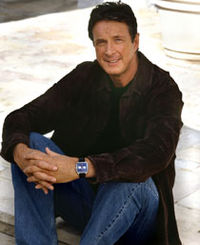Today’s column is brought to you by Kit Shannon, turn-of-the-century Los Angeles lawyer. ANGELS FLIGHT, the second novel in The Trials of Kit Shannon series, is now available for Kindleand Nook.
Nothing had prepared her for the hostility of a city gripped by prejudice . . .
But you have to be prepared for the slings and arrows of the writing life. These may come in the form of rejection letters, bad reviews, angry reader e-mails, personal jabs from a family member, or any number of other places.
To survive, you need to develop Rhino skin. You need an outer armor that takes the hits but doesn’t stop you. Here’s how you get it:
1. Let rejection, or criticism, hurt for a day, no more
It’s all right to take a hit and feel its full force. Don’t try to hide from the emotional impact. Give vent. Destroy a pillow if you must. But let go after half an hour or so. Determine to go immediately to #2.
2. Write
When my son fell off his two wheeler the first time out, I didn’t let him quit. I got him back on the bike and almost burst my lungs running with him. We repeated the process till he got it.
He did not like falling. But when he was back on the bike and peddling, he was not thinking about the fall. He was thinking about staying up for the next few feet.
Writing is like that. When you are down about your writing, pound out those words. Dennis Palumbo, in his book Writing From the Inside Out,says “Every hour you spend writing is an hour spent not fretting about your writing.”
A daily quota is tonic for your ache.
What you’ll find is wonderful: when your mind reflects back on the hurt, the wound won’t be as deep as it once was. And the more you do write, the more the hurt begins to fade. You won’t forget it, but it won’t debilitate you.
3. Review your career path
And that’s what you’re on. Do not think of yourself as someone trying to sell a novel. You are a writer, and that means you never quit.
Do you need to start another book? What will you do differently? What can you learn from the rejection or the critic that is of actual value to you? Learn that thing then write and forget the rest.
4. Reward yourself
For a writing job finished, for a quota met, for a manuscript completed, heck, for just about anything, treat yourself to something.
When I finish a manuscript I like to take a full day off and go on a literary goof. There are used bookstores in L.A. I like, so I’ll start there, browse the shelves, pick up that Cornell Woolrich I’ve been missing, or add to my collection of 50’s paperback originals.
I might just go to a park or the beach, put out a chair and read.
That night, I’ll take my wife to one of our favorite places for dinner. You simply have to enjoy the journey or what’s the point of it all?
5. Remind yourself
Two reminders to put inside your head.
The first is to remember that the greatest writers of all time have been rejected and, once published, slammed in a review.
Thomas Bailey Aldrich, writing in the Atlantic Monthly in 1892, said of Emily Dickinson, “An eccentric, dreamy, half-educated recluse in an out-of-the-way New England village—or anywhere else—cannot with impunity set at defiance the laws of gravitation and grammar. Oblivion lingers in the immediate neighborhood.”
Nothing of Mr. Aldrich, to my knowledge, remains in print.
An unnamed editor returned Tony Hillerman’s first Navajo detective manuscript to him, with a note: “If you insist on rewriting this, get rid of all that Indian stuff.”
When you get a rejection or bad review, remember you’re in very good company.
And then remind yourself constantly that you are a writer, because you write. There are many more people who do not write yet feel perfectly at ease sniping at those who do. When such a snipe comes your way, know that you are the one putting yourself on the line, opening a vein, walking the tightrope, singing a solo under hot lights. You are part of a courageous bunch who are all about doing. Teddy Roosevelt’s famous advice applies to writers:
“It is not the critic who counts: not the man who points out how the strong man stumbles or where the doer of deeds could have done better. The credit belongs to the man who is actually in the arena . . . who, at the best, knows, in the end, the triumph of high achievement, and who, at the worst, if he fails, at least he fails while daring greatly, so that his place shall never be with those cold and timid souls who knew neither victory nor defeat.”
Get in the arena. Go at your writing with all the devotion and love and enthusiasm you have. When the darts of rejection or criticism come your way, keep writing. You will stop them with Rhino skin, and keep right on charging ahead.

